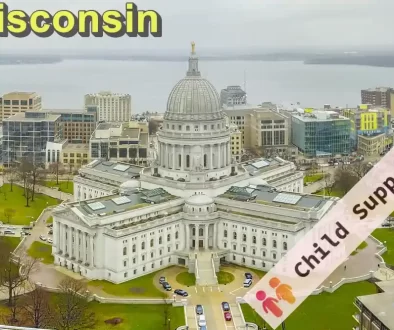Child Support in Vermont
In a family setting, the care of a child is the responsibility of both parents. This burden is easily shared between them as they are together. However, when the parents are not together (because of divorce, separation, or they were never married), the same obligations still exist for both of them. It is common for the noncustodial parent to neglect all childcare responsibilities for the custodial parent to take care of alone. For this reason, there are child support laws that spell out levels of responsibility of both parents in the care of their child, according to their ability.
Child Support Process
Child support orders are usually established during a separation or divorce procedure. However, they may also be established for parents who were never married. A child support order often includes details on who is to pay and receive support, the amount to be paid, the frequency of the payments, the child/children covered by the order.
Custodial parents of minor children in Vermont can submit applications to the Department for Children and Families (DCF). The DCF is able to help locate missing parents, establish parentage and establish/modify support orders. However, the department cannot help with custody issues. The application form can be accessed at https://dcf.vermont.gov/sites/dcf/files/OCS/Docs/CS-Application.pdf and can be filled electronically or manually printed for completion. In this form, the parent would be required to provide information about themselves, like name, mailing address, social security number, date of birth, etc. The details of the noncustodial parent would also be required in the application. This includes full name, social security number, home address, telephone, physical description (height, eye color, hair color, etc.) employment information, sources of income, assets, vehicle details, etc. This information provided about the noncustodial parent is important because the DCF may need to use it to locate the parent so that a notice of the child support case can be served. Alternatively, if the information provided is not sufficient to locate the parent, DCF has other resources that may be utilized. These include the Federal Case Registry and Federal Parent Locator Service, the National Directory of New Hires, the Department of Labor, the Department of Motor Vehicles, other government agencies that issue professional and recreational licenses. Child support services are provided free of charge. However, parents must fill a new application form for each parent they want to request child support form.
When the noncustodial parent has been located, the next procedure is to establish the parentage of the child. For parents who were married when the child was born or whose marriage ended not more than 300 days before the birth of the child, the mother’s husband is recognized as the child’s father and both parents’ names can be added to the birth certificate of the child. If the biological parents are not married, they may voluntarily acknowledge the parentage of the child. This requires them to complete a Voluntary Acknowledgment of Parentage (VAP) which can be obtained from https://dcf.vermont.gov/sites/dcf/files/OCS/Docs/Parentage-Brochure-Form.pdf and sign it in the presence of an adult witness. In some cases, court action may be needed to establish a child’s parentage. Usually, the court will order genetic testing to determine if the man is the child’s father. For further information on establishing parentage, and various unique cases, visit https://dcf.vermont.gov/ocs/services/parentage.
After the establishment of parentage, the DCF can proceed with establishing the child support order.
How Do You Receive Child Support?
Parents who receive child support are required by law to sign up for electronic payments. Two options are available for this, and a preferred choice is selected as part of the application process.
- Direct deposit: This is an electronic payment option that allows parents receive their child support payments directly into an authorized bank account that they own. Parents who wish to switch from an alternative mode of receiving child support payments can fill out a Direct Deposit Authorization, which can be found at https://dcf.vermont.gov/sites/dcf/files/CDD/Forms/Vendor_ACH_Authorization_Form.pdf.
- US Bank ReliaCard: The US Bank ReliaCard is a Visa debit card that the state issues to parents who are receiving child support. The card is loaded with the child support payments as soon as they become available. Using the ReliaCard is convenient as it does not require the parent to have an existing bank account and it can be used at any location where a Visa card is accepted.
Amount Receivable as Child Support
The court has several considerations for calculating the amount of money to be paid as child support. A major factor is the income of both parents, as declared. If there is any reason to believe the full income is not captured, an amount may be imputed and used for the calculations. The court also considers the recommendation of staff of the Office of Child Services, as well as the Vermont Child Support Guidelines. The guidelines consider the overall financial situation of the parents, including other existing court-ordered support obligations, alimony settlements, etc. Parents can also apply for a modification of an existing child support order if there has been a significant change in the financial situation. This modification allows the order to better reflect current circumstances. Furthermore, the state hosts an online Child Support Calculator which can be found at https://childsupportcalculator.ahs.state.vt.us/#/expert. The amount gotten is not official but is rather an estimate of what can be expected in the court order. Further details on the amount receivable as child support and modification procedures can be found at https://dcf.vermont.gov/sites/dcf/files/OCS/Docs/OCS-Parent-Handbook.pdf.
Enforcement of Child Support
If the noncustodial parent refuses to comply with the order, the Office of Child Support can resort to enforcement actions. Most of these are administrative remedies and can be taken without a court order. They include wage withholding, increasing wage withholding to cover arrears, liens, refusal to renew licenses, offset of state and federal tax refunds, offset of lottery winnings, passport denial, etc. Several court orders remedies also exist, such as license suspension, holding assets in escrow, imprisonment, etc.




